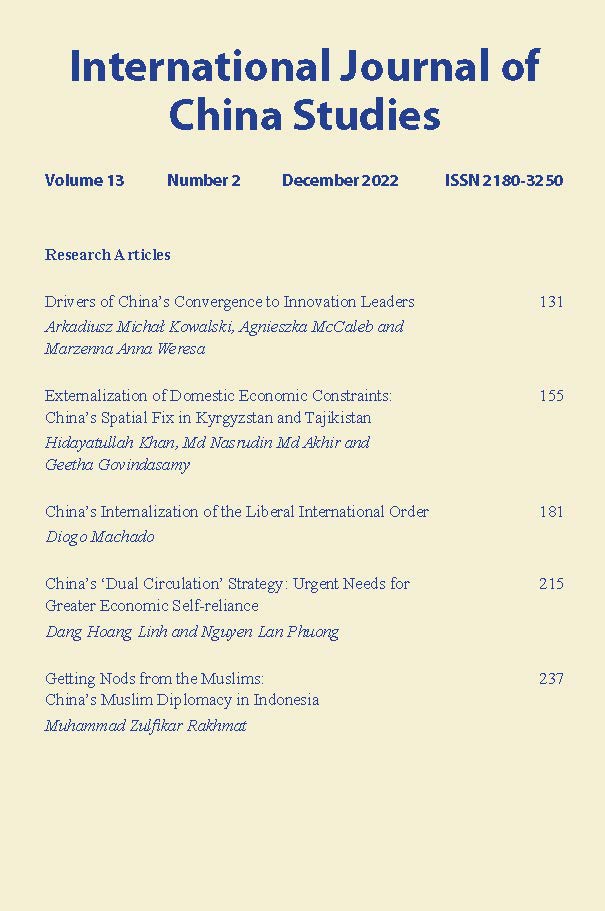China’s Internalization of the Liberal International Order
Keywords:
China, human rights, internalization, liberal international order, sovereigntyAbstract
Most literature on China and the liberal international order has described how China behaves towards the multiple elements of the order, but virtually no systematic efforts were undertaken to understand the rationale or motivation of that behaviour. Hence, such studies do not clarify whether compliance comes from an actual commitment to the order’s ideas or if it is instrumental in order to acquire legitimacy and avoid social sanctions. To address this gap in literature, this article elaborates on the concept of internalization. I separate partial from full internalization: both require substantial compliance with norms, but in the former states halt compliance hen interests are at stake. I identify Chinese interests to, then, assess if China internalized the three main institutions of the liberal international order: sovereignty, human rights and the market. I conclude that none of them was fully internalized yet, although there is partial internalization of sovereignty and the market. This means that China’s compliance with the order’s norms is higher than any assume, but that it is selective and subordinated to Chinese core interests.

